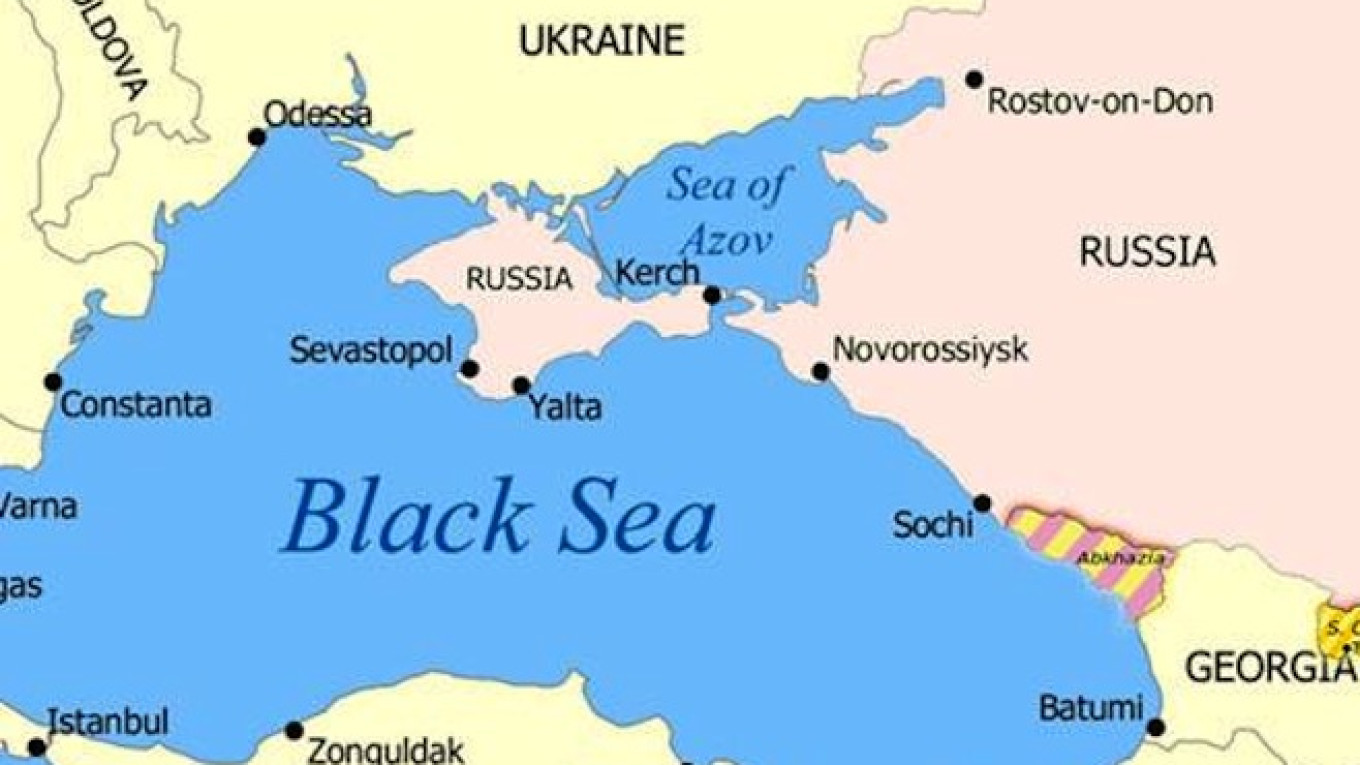Russia has responded to a geography lesson from Canada's NATO delegation by tweeting a map of its own and accusing the country of hypocrisy in a diplomatic sparring match unfolding on Twitter.
On Wednesday, as Russia's Defense Ministry said 10 captured servicemen had wandered over the Ukrainian border "by accident," Canada's NATO delegation condescendingly tweeted a map to help Russians get oriented.
"Geography can be tough. Here's a guide for Russian soldiers who keep getting lost & 'accidentally' entering Ukraine," the tweet read.
A map included in the message showed Russian territory highlighted in red and titled "Russia," and Ukraine, in blue, labeled "Not Russia."
The Russian exclave of Kaliningrad, and the recently annexed peninsula of Crimea as well as the city of Sevastopol were not marked as belonging to Russia, however.
The tweet quickly gained momentum and was retweeted nearly 30,000 times, apparently prompting Russia to respond with its own geography lesson a day later.
Helping our Canadian colleagues to catch up with contemporary geography of #Europe @CanadaNATO pic.twitter.com/MjzRxpFFfN
— Russians at NATO (@natomission_ru) 28 ?°?????????‚?° 2014
On Thursday, Russia's NATO delegation posted its own map on Twitter, showing Crimea as Russian territory.
"Helping our Canadian colleagues to catch up with contemporary geography of Europe," the message read.
Another message posted by the Russian delegation seemed to accuse Canada of hypocrisy for its stance on the Ukraine crisis.
"BTW why not share Canadian experience of 'asymmetrical federalism' with Kiev's authorities," the message read, in a reference to Canada's own political system, whereby some states in a federation have more autonomy than others.
Moscow had earlier suggested introducing federalism in Ukraine as an option for resolving the crisis.
A Message from The Moscow Times:
Dear readers,
We are facing unprecedented challenges. Russia's Prosecutor General's Office has designated The Moscow Times as an "undesirable" organization, criminalizing our work and putting our staff at risk of prosecution. This follows our earlier unjust labeling as a "foreign agent."
These actions are direct attempts to silence independent journalism in Russia. The authorities claim our work "discredits the decisions of the Russian leadership." We see things differently: we strive to provide accurate, unbiased reporting on Russia.
We, the journalists of The Moscow Times, refuse to be silenced. But to continue our work, we need your help.
Your support, no matter how small, makes a world of difference. If you can, please support us monthly starting from just $2. It's quick to set up, and every contribution makes a significant impact.
By supporting The Moscow Times, you're defending open, independent journalism in the face of repression. Thank you for standing with us.
Remind me later.


